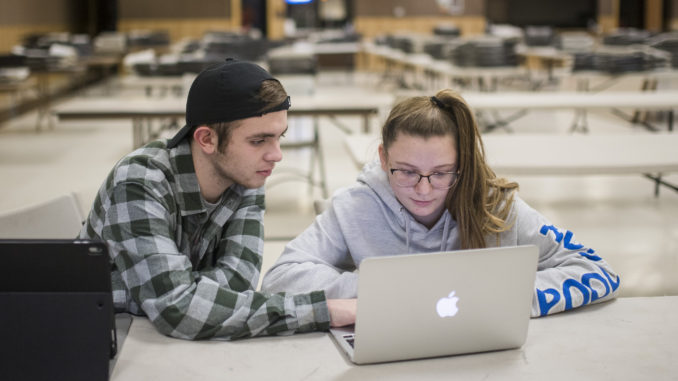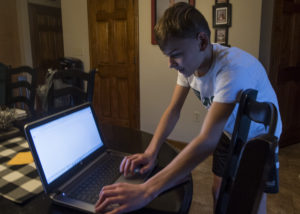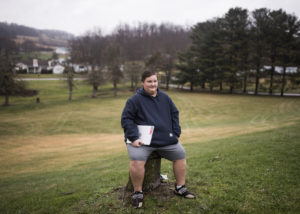
Editor’s note: This story was produced as part of a collaborative reporting project by the Pittsburgh Media Partnership. Learn more about our partners in the collaborative and sign up for the partnership’s newsletter to get weekly summaries at www.pghmediapartnership.com.
Special reporting project by:
Jeff Stitt of the Mon Valley Independent; Colin Deppen of The Incline and Jamie Wiggan of McKees Rocks Gazette 2.0
Carla Rathway could hear her youngest son’s frustration from the other room. She knew the clamor meant the internet was acting up again and keeping 12-year-old Preston from his school work. It happened all the time.
“He’s like, ‘Oh my gosh,’ when it’s buffering or locking him out,” Rathway said, adding she also overhears him saying, “’I hate this internet.’”
Like scores of Pennsylvania students, Preston, a seventh-grader at Belle Vernon Area School District in Westmoreland County, and his brother, 15-year-old 10th-grader Dylan, were in their second month of online learning this October.
But the brothers were doing it all without a reliable high-speed internet connection at home, where they live across the county line in Fayette County.
In place of one, Preston and Dylan relied on an ad hoc network of erratic mobile hotspots and visits to relatives in order to complete their assignments.
Makeshift solutions, like these, exist all around them.
Elsewhere in Fayette County, public school students are going to emergency facilities such as firehouses and churches to access the internet. And several districts are experimenting with broadcasting classes on TV at an appointed time — instead of having students log online.
In neighboring Washington County, one school sent out vans with mobile hotspots meant to help extend the area’s Wi-Fi connections.
Farther north, districts in Beaver and Butler counties put access points on school buildings so families can park in the school lots to use the internet. And across the region, small businesses are opening up their internet access to students.
Internet service providers such as Comcast — one of the largest home providers in the country — say their coverage areas are constantly and naturally expanding. But experts point to the literal race underway to equip young learners in Pennsylvania and say that none of this is happening or working quickly enough.
In 2013, Pennsylvania awarded millions of dollars in tax credits to private companies to improve broadband internet in rural areas — without requiring them to actually invest there. Last fall, the state legislature created a new program meant to replace it, offering similar incentives to the telecom industry. Advocates are skeptical that it’ll close the divide between those who have high-speed internet access and those who don’t.
Closer to Pittsburgh, where internet service providers have made coverage more reliable but not always affordable, students are taking advantage of the providers’ assistance programs, relying on deeply discounted access to the resource that, as the pandemic rages on, connects them to their classmates and teachers.
Similar or identical stories can be found in rural and urban districts across the commonwealth.
While the underlying access gaps aren’t new, this pandemic might prove to be a tipping point in how we view the service: privilege vs. utility.
Until then, solutions remain piecemeal and almost wholly reliant on private sector whims or the triage efforts of startups and nonprofits.
“Everybody says we’ll look into it,” Dylan’s dad, Brian, said about their bids for assistance. “That’s what everybody says.”
To read the rest of the story, please see a copy of Thursday’s Mon Valley Independent, call 724-314-0035 to subscribe or subscribe to our online edition at http://monvalleyindependent.com.




